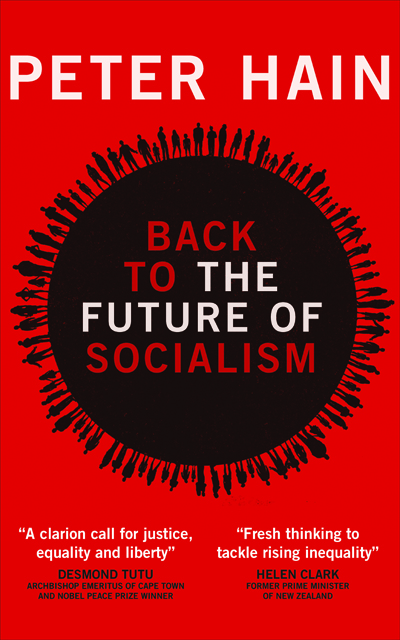Book contents
- Frontmatter
- Contents
- Frontmatter
- Preface
- Introduction: Back to the future of socialism
- 1 The Crosland agenda
- 2 New Labour, Crosland and the crisis
- 3 Finance and the new capitalism
- 4 Growth not cuts
- 5 Growth by active government
- 6 Fraternity, cooperation, trade unionism
- 7 But what sort of socialist state?
- 8 A new internationalism
- 9 Britain in Europe
- 10 Refounding Labour
- 11 Faster, sustainable growth
- 12 A fairer, more equal society
- 13 A future for Labour
- Notes
- Index
6 - Fraternity, cooperation, trade unionism
Published online by Cambridge University Press: 15 April 2023
- Frontmatter
- Contents
- Frontmatter
- Preface
- Introduction: Back to the future of socialism
- 1 The Crosland agenda
- 2 New Labour, Crosland and the crisis
- 3 Finance and the new capitalism
- 4 Growth not cuts
- 5 Growth by active government
- 6 Fraternity, cooperation, trade unionism
- 7 But what sort of socialist state?
- 8 A new internationalism
- 9 Britain in Europe
- 10 Refounding Labour
- 11 Faster, sustainable growth
- 12 A fairer, more equal society
- 13 A future for Labour
- Notes
- Index
Summary
Tony Crosland was candid about citizen cooperation as an imperative for societal success: he wasn’t at all sure where it fitted into his vision of socialism. He did not doubt that fraternity and cooperation formed one of the five basic socialist aspirations, but was uncertain how to translate that ideal into practical proposals. He acknowledged that working together for a common goal could provide powerful incentives of fulfilment, a sense of satisfaction and fewer grievances. But he accepted, too, that differential rewards boosted economic growth and living standards, because people generally worked for personal material gain, not for some social good. Each motive, individual self-advantage or a shared purpose, worked well in appropriate circumstances.
The one area where Crosland certainly saw individuals joining forces in a practical way was in the workplace, where differences of reward, of status, of opportunity and of treatment by management were generating discontent and resentment rather than teamworking and high morale, holding growth back instead of pushing it forward.
Britain in the 1950s was a class-conscious society in which the working classes were still expected to know their place, show due deference and keep clear of first-class carriages. These were the days of the tradesmen’s entrance, of petty status distinctions, and of Received Pronunciation. Of bowler hats, trilbies and cloth caps – when who you knew counted more than what you knew. When golf-playing board members could enjoy long lunches in the directors’ dining room while their employees took short breaks in the company canteen listening to ‘Workers’ playtime’. When much of British industry was led by a privileged elite of amateurs in an increasingly professional post-war world. In 1957, when sociologist Michael Young first coined the term ‘meritocracy’, the establishment twisted it into an endorsement of their deserved place on the bridge of the ship of state and in the driving seat of British business, summed up in Prime Minister Harold Macmillan’s 1957 claim ‘You’ve never had it so good.
You did not have to be Fred Kite (the caricature trade union shop steward of the era) to want to say no to nepotism, to understand why an underlying atmosphere of conflict seemed ever present in British workplaces, or to see how collective bargaining by trade unions might be an effective way of winning a better deal for blue- and whitecollar workers alike, and of bringing the UK economy up to date.
- Type
- Chapter
- Information
- Back to the Future of Socialism , pp. 111 - 132Publisher: Bristol University PressPrint publication year: 2015



